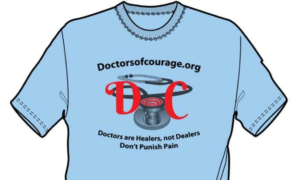In response to my Communication Campaign, I received an email from a chronic pain patient. Her directions for communicating with legislators is very good. She gave me permission to share. They are here as a post, and then I will also put them on the Communication Campaign page. I am breaking it down into two posts. This first one is on general communication. The second will be for a face-to-face visit.
I always welcome any contribution to the website that can be shared with others.
Here are her thoughts:
Prior to becoming disabled I worked with a lot of people who were disabled who wanted to start or grow a business. While some were more sophisticated, many benefited from being guided through the process and doing one step at a time. Right now a lot of legislators aren’t hearing at all from pain patients. I think we need to motivate our pain population to just make a call or email, very simple, and tell the legislator they’re in severe pain and can’t get pain meds. Then the more sophisticated ones can give more details and information to the legislators. Just my thoughts.
You are correct that we need to start showing the legislators how much money it is costing to have cancer patients go to the emergency room due to pain that could have been treated outside the ER, as well as other true costs of not caring for pain patients. I think working through the media might be of great help with this, but it takes a pain patient to pick up the phone or send an email to get a story published.
I wonder if it would make sense to try to get pain patients to make the contacts, and then if they have a legislator or journalist who wants to talk to them further there could be some people who could help them prepare and get them the needed documentation. Just thinking out loud.
Here are her instructions for communicating with Legislators:
Any additions from me are in brackets and italicized.
How to Get a Meeting Scheduled with Your Legislators
- First of all, write/call/email them regularly! I recommend approximately every month, and give different information each time you contact them. Ask your friends and relatives to also contact them on your behalf, and give them the contact details of their legislators as most of them won’t look it up but may reach out if you make it easy enough. Remind them regularly to make contact with your legislators. Make sure you put Constituent in the subject lines of emails or mention you’re a constituent very early in any letters or voicemails. Look to see if there is a legislative assistant [that should primarily be the health staffer who is at the Washington office, but you can also do the same with any assistant at the local office, especially if you get well known by them], and if so, be sure to write/call/email them also. Do not say negative comments in your communications and avoid pointing fingers. Do not speak negatively about the addiction community – they are suffering also, and we should support them and try to work together to solve this problem. Every time you communicate with your representatives be sure to ask for a meeting!
It’s common to just get a letter back from your legislators saying they are fighting hard to deal with the opioid crisis. Don’t lose hope! Keep at it and know that persistence pays off.
Some ideas for what you write or say to them initially (pick and choose, you don’t want your message to be more than 2-3 paragraphs long initially):
-
- How many chronic pain patients there are in the US [50.2 million or 20%].
- How they or you are suffering from pain and how this restricts your activities, work, or quality of life.
- You are one of many constituents in their district that suffer from chronic pain and you all want a meeting with them.
- Give an example of a veteran who cannot get care or pain/psychiatric medications (with their permission of course).
- Include references to any numbers you give, tell them about how prescription pain medications never were and currently aren’t a significant contributing factor to the overdose death rates (CDC data itself proves this). [I will try to keep the latest data available on the communication page including graphs].
- How patients with cancer, sickle cell disease, MS, those in palliative care and long-term care cannot get appropriate pain relief today.
- How chronic pain patients today can’t find any doctors to prescribe any pain medications for them,
- How many primary care clinics won’t accept chronic pain patients.
- How many people are being abruptly cut off opioid pain medications by doctors which can cause great harm and is against CDC and FDA guidelines.
- How doctors are being intimidated by the DEA, US Federal attorneys, state medical boards, state district attorneys.
- A bad experience with a doctor’s office or pharmacy, etc.,
- The harms that can come from untreated or undertreated pain (give suicide examples, chronic pain patients turning to alcohol or street drugs).
- Give examples of how minorities and women are less likely to have their pain taken seriously and treated.
- Give examples of how people on Medicaid and Medicare either can’t get pain medications or treatments approved or the cost is prohibitive.
- How your pharmacy or insurance overwrote your doctor’s prescription.
- How you had a false positive/negative urine test and now you are incorrectly marked as OUD (opioid use disorder).
- Sign up for your legislator’s email alerts, Twitter alerts, Facebook accounts, etc. so you can see when your legislators will be near you at events. You might get the chance to talk to them briefly at some of these events, and they often bring staff members you can talk to if you can’t get time with your legislator. Look for announcements that their staff members may be available at events such as senior expos, outdoor expos, etc. where there are staff members present to listen to constituents. These announcements are often made within 48 hours of the event happening.
- Research to see if your legislator has a veteran’s liaison, senior liaison, or other staff members you might be able to talk to. If you are able to talk to them, it’s possible they may mark on your record that a meeting with you would be worthwhile so it could be easier to get a meeting. [Everyone should be communicating with the health staffer in Washington as a primary email contact, and then local staff as well for in-person visits.]
- See if there is a spot on the web site for your legislator to request a meeting, and if there is do so.
- Learn and memorize key statistics! I cannot emphasize this enough. You need to be able to talk intelligently to the overall issue if you make contact with one of their staff members or the legislator themselves.
- Get on Twitter and tag your legislators in tweet or retweets of key tweets you see regarding the plight of pain patients. [Tweet them regularly yourself with the information here on Doctorsofcourage.]
- Get connected with the people in your state who are trying to get legislation passed at the state level. Ask how you can help, get familiar with the issues and proposed legislative efforts there. Help get legislative sponsors or supporters for your state’s bills to protect chronic pain patients and doctors. [But understand that it is getting the Controlled Substance Act repealed at the federal level that is the only action that will stop the attacks on your doctors.]
- Look at what committees your legislator works on and what bills they have sponsored and supported. [Doctorsofcourage supporting members have access to this on a spreadsheet]
- Join any and all town halls put on by your legislators and submit questions ahead of time. Even if they don’t select your question, it is one more opportunity for the issue to be seen by their staff or even by the legislator themselves. Most of these are held virtually since COVID.
My comments:
Now most Americans, including the legislators, now have the propaganda in their head that opioids cause addiction. So I can’t stress enough that it is of utmost importance to learn the real cause of addiction that is explained here in the videos and also in the Webinar recording available on the top menu bar, and include this truth in every communication. Also add the source: www.doctorsofcourage.org. Feel free to include my contact information with any correspondence. I will be very surprised if I get any legislator to query me about what I know, but I would be very happy to respond.
Linda Cheek is a teacher and disenfranchised medical doctor, turned activist, author, and speaker. A victim of prosecutorial misconduct and outright law-breaking of the government agencies DEA, DHHS, and DOJ, she hopes to be a part of exonerating all doctors illegally attacked through the Controlled Substance Act. She holds the key to success, as she can offset the government propaganda that drugs cause addiction with the truth: The REAL Cause of Drug Abuse.
Get a free gift to learn how the government is breaking the law to attack your doctor: Click here to get my free gift


Trackbacks/Pingbacks